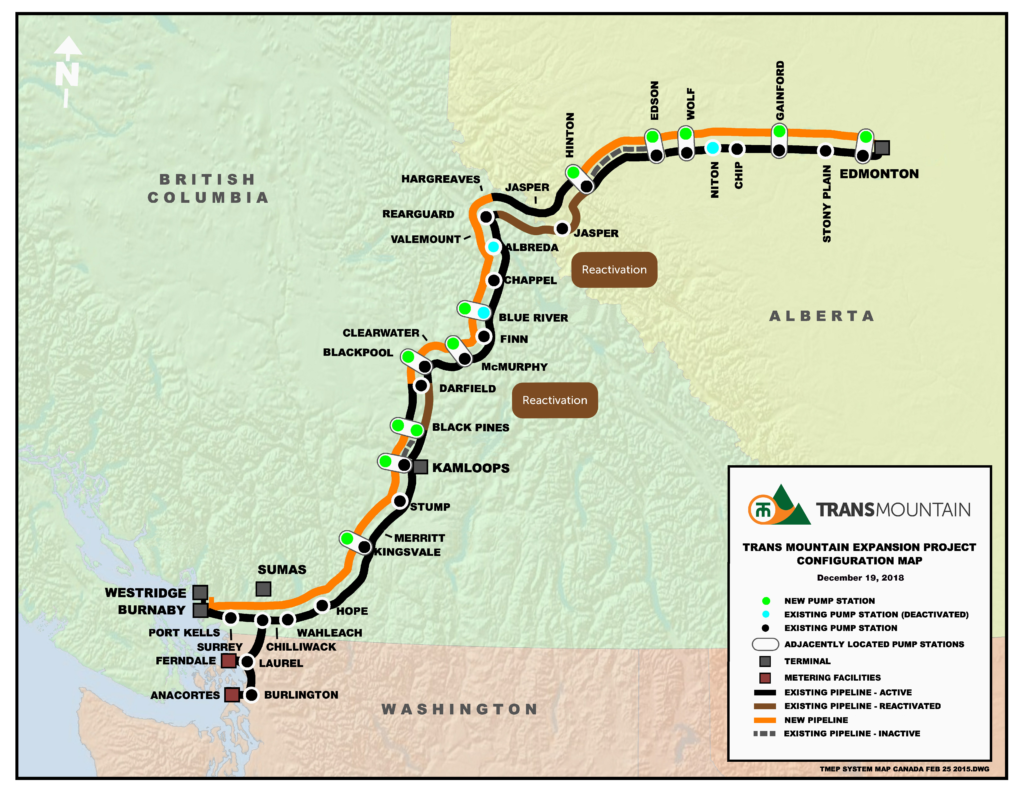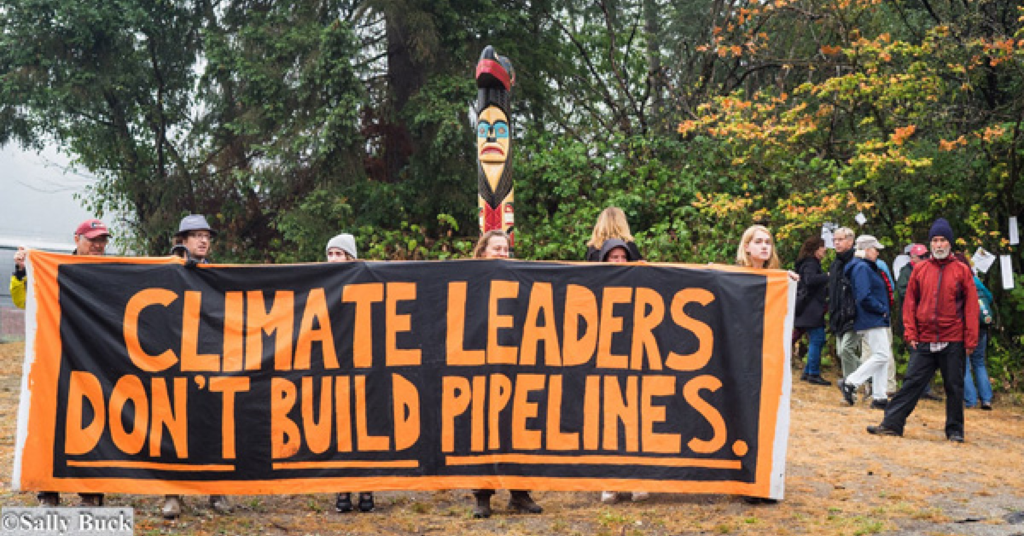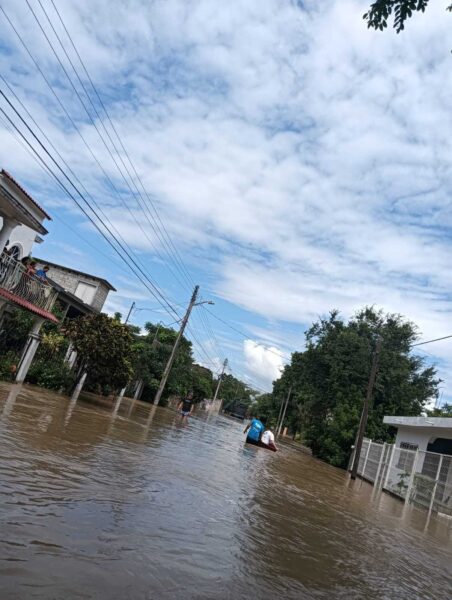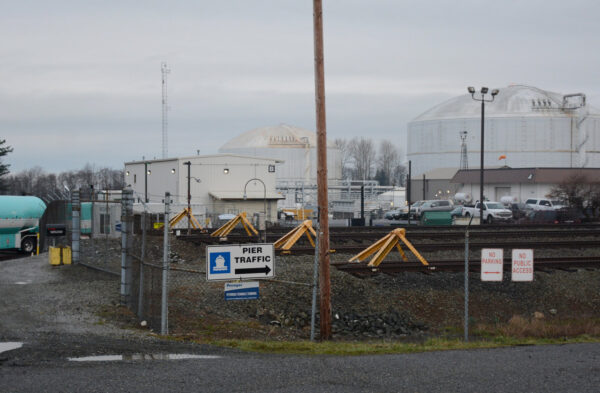Background
To begin, here is a little overview of the history of the Trans Mountain (TMX) pipeline. The pipeline was built in Edmonton, Alberta and ended on the West Coast of British Columbia in Burnaby. It then began to move oil in 1953.
Between the years 1953 and 2013, there had already been a number of oil spills. In 2013 Kinder Morgan, one of the largest energy infrastructure companies in North America, proposed expanding the pipeline. Upon Kinder Morgan’s proposal, marches and protests against this expansion followed and oil spills continued.
Three years later, The National Energy Board recommended the approval of the TMX pipeline.
Despite the disapproval and protests of indigenous communities and thousands of young and old Vancouver residents, Prime Minister Justin Trudeau approved the Trans Mountain pipeline expansion.
As time progressed, Kinder Morgan took legal actions to prevent land and water protectors from demonstrating at Trans Mountain pipeline facilities. But that didn’t stop people from marching to the foot of Kinder Morgan’s tank farm.

After weeks of demonstrations, Kinder Morgan’s TMX facilities in Burnaby, BC suspended “non-essential activities and related spending” on the pipeline project. All this only for Justin Trudeau to pay for it with 4.5 billion of taxpayers’ dollars.
This news was met with even more protests and demonstrations from thousands. And after a number of revisions and reconsiderations, on February 22, 2019, the National Energy Board recommended the approval of the Trans Mountain pipeline. Not even 24 hours had passed since this declaration was made before Trudeau reapproved it.
“What does this mean for me? Why should I care?”
The TMX expansion would cause an increase in tar sand extractions in northern Alberta, with a capacity of 590,000 barrels per day. Oil from tar sands is one of the most destructive, carbon-intensive and toxic fuels on the planet.

When a spill occurs it is impossible to clean it up completely. This affects the entire web of life of animals in the area.
To help paint a picture, the spills coming from super tanker traffic harm the salmon population, which then damages the entire web of life, from black bears to orcas. This also causes an existential threat to Northwest tribes who depend on the fish for their cultures and identities, and the TMX pipeline would only exacerbate this crisis.
Over half the pipeline will cut through unceded Secwepemc territory, spanning 180,000 square kilometers. The Canadian government did not seek consent from the Secwepemc. The existence of “man camps”, where the pipeline workers occupy, pose a serious threat to indigenous women in rural communities. Man camps have been recognized by the United Nations to bring increased sexual violence in communities. They also face the additional risk of exposure to the COVID-19 virus that could be carried by these construction workers who live in the densely populated man camps.
In other words, this project is not only harming our shared waters and increasing climate risks, but also violating Indigenous rights. If this pipeline is expanded then those risks would only multiply.
“Okay, how can we stop them?”
It is because of major insurance companies, such as Chubb, AIG, and Liberty Mutual, that the Trans Mountain pipeline is able to operate and grow into a major public health and environmental hazard. Allowing these insurance companies to continue to fund the expansion of the TMX pipeline will only exacerbate these alarming harms.
The only way to avoid any more negative ecological and health implications is to ditch the pipeline project entirely, but benefactors of the pipeline, like Kinder Morgan, still refuse to consider the impact it has had and will continue to have on the lives of people living near this harmful pipeline and its facilities.

That’s why pressure campaigns against fossil fuel insurers have become a critical strategy in the international environmental movement. Essentially, without insurance, there is no approval of the project, and there is no project to finance.
More recently, The Canadian Energy Regulator released their decision to allow Trans Mountain to hide the names of their insurers, preventing Tsleil-Waututh, one of many groups of Coast Salish peoples living in the Pacific Northwest, from communicating directly to insurers about the infringements Trans Mountain’s operations have on their Indigenous rights.
“What can I do to help?”
Next month, join the Week of Action events happening June 14th-21st! This is the perfect opportunity to show support by taking part in solidarity actions to stop the insurance of the Trans Mountain pipeline. The links for this event are provided in the list below and offer various different tools and resources to help educate and empower us to keep protecting indigenous rights and our shared waters.
More ways to help stop the expansion of the expansion of the TMX pipeline:
- Take part in June 14-21, 2021 Stop Insuring Trans Mountain Week of Action
- Write a letter to the editor
- Donate
- Sign petitions
Other Resources:
- The Tsleil-Waututh Nation Sacred Trust initiative Website
- STAND.earth Website
- The Guardian Article
- The Council of Canadian Article

Samantha Rosas (she/her) graduated from Western Washington University with a BA in Sociology with a focus in race and ethnic relations. She is a volunteer at Respuesta Communitaria Latinx al COVID-19 en WA, a social media response created to empower and provide equal access to information and resources for Latinx Communities across Washington state. She is passionate about making positive and lasting impacts in communities across different cultural and ethnic backgrounds. In her free time, she enjoys watching movies, going on walks, and finding new cooking recipes.


